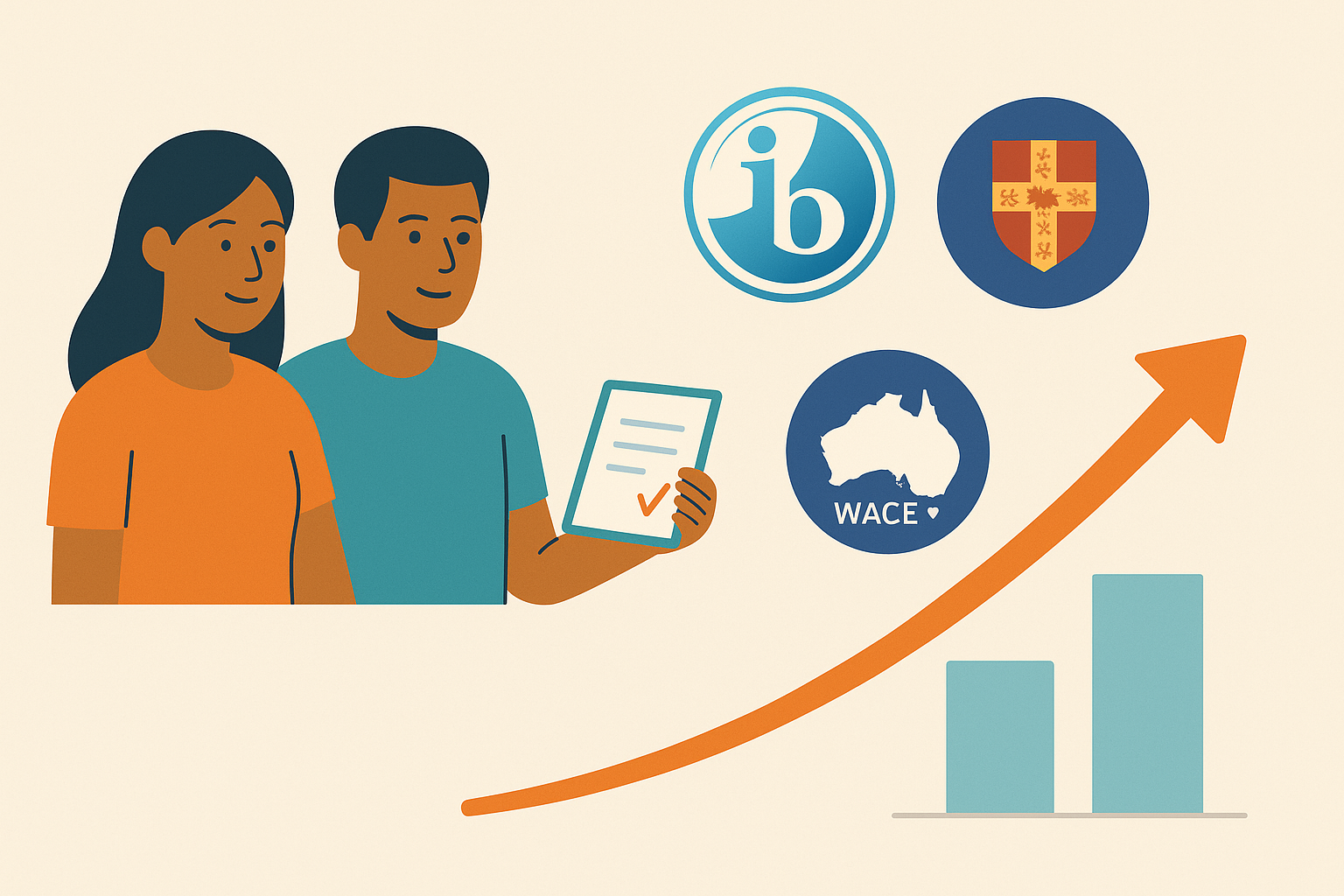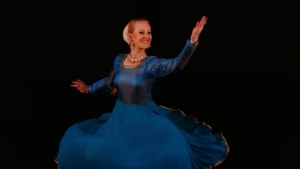In recent years, a silent revolution has been reshaping India’s school education landscape. Parents are opting for international curricula such as the International Baccalaureate (IB), Cambridge Assessment International Education (CAIE), and now, even Australia’s Western Australian Certificate of Education (WACE) rather than the traditional national boards of CBSE and ICSE. This shift, which was previously limited to elite urban schools, is now spreading rapidly to tier-2 and tier-3 cities, indicating a deeper change in terms of what Indian families want from education. Speaking to students, parents, and heads of schools at the best international-curriculum schools, one message was clearly communicated: what is attractive about these boards is much more than just academics. Parents today are seeking an education that is relevant globally, fosters critical thinking and creativity and prepares students for university abroad and new-age careers back in India.
Rapid Growth in Numbers
Data provided by Cambridge Assessment International Education indicates that the board surpassed 1,000 schools across South Asia, with over 800 in India alone—a dramatic increase from 461 Cambridge schools in 2019–20. IB (The International Baccalaureate) reported a 40% increase from 183 schools in 2019 to over 255 by 2025.
What stands out is that this growth has not occurred only in major cities like Delhi, Mumbai, or Bengaluru. Cambridge notes that nearly 47% of its schools in India are now also found in smaller towns and cities; international boards are no longer the privilege of the metro elite but are being adopted by aspirational families living in up-and-coming urban centers—Indore, Surat, and Coimbatore, for example.
In addition to this international trend, the Western Australian Certificate of Education (WACE) was officially introduced to India in 2025 after approval from the Ministry of Education. The Australian franchise has announced the opening of 100 schools in India in the next three years, further signalling India’s appetite for global curricula.
Why did it change?
Experts cite several reasons for this trend. Indian parents, for example, are increasingly valuing global exposure and want to provide their children better opportunities to transition to international universities. The flexible skills development approaches of IB and Cambridge—with emphasis on research, inquiry, and project-based assessment—draw a stark comparison to the rote learning and assessment-focused approaches that still dominate in traditional systems in India.
Additionally, the National Education Policy (NEP) 2020 establishes an increased emphasis on internationalization and interdisciplinary learning and encourages schools to engage with global practices. Foreign universities establishing local campuses in India, such as Deakin and Wollongong, have also contributed to this mindset.
More than Just Academics
For many families, the primary appeal of international boards is their ability to foster confidence, communication, and readiness for the real world among students. “It is no longer only about marks,” remarks the head of school in Delhi. “Parents want kids to think globally, act independently, and learn skills that remain important even 10 years later.”
The Future of Schooling in India
With IB and Cambridge already expanding significantly and now WACE joining in, it is apparent that Indian school education is undergoing an international transformation. As more parents welcome this shift, traditional boards may soon be put under pressure to reinvent themselves in order to keep pace with the global and flexible learning environments that families in modern-day India now expect.
Ultimately the surge of international boards represents a new educational aspiration that is global in outlook, skills-driven in approach, and steeped in the ambitions of India’s next generation.












More Stories
CTET February 2026 Re-Exams Set For Two Centres In Bihar
UP Board exams: principal solver held
Noida International University Successfully Organized Educators’ Meet in Durgapur